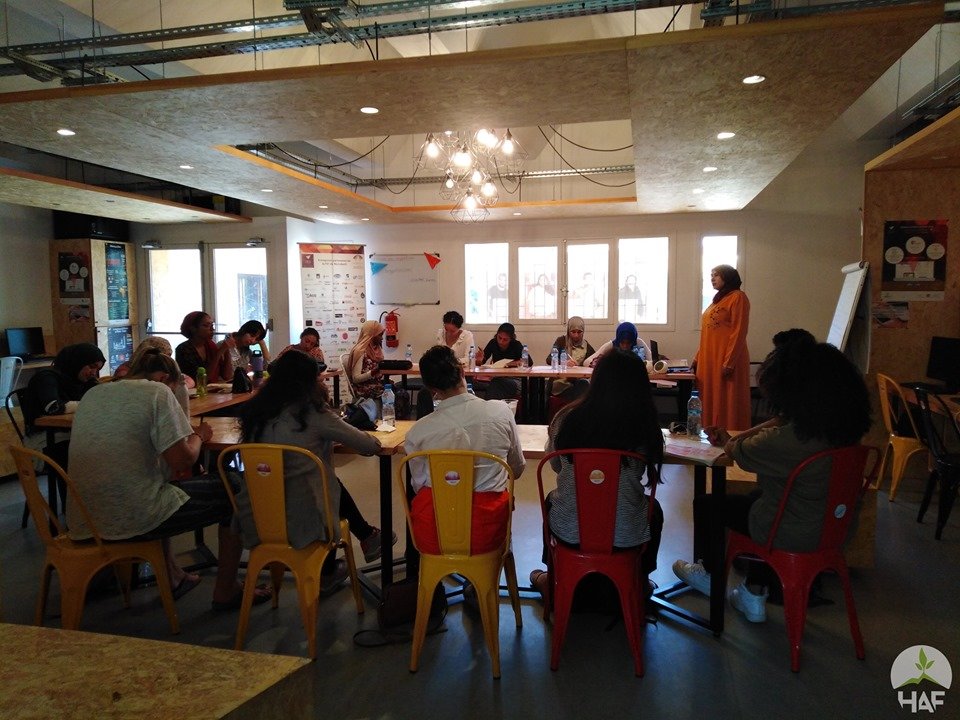
I didn’t think I would need to learn how to imagine at the Imagine workshops this week, but a rerouting and adjustment of my own mind became necessary.
I am a pro at these workshops; engagement, listening, asking questions, empowerment. I mean I lead these activities for girls through my sorority, class service, and even in a classroom setting. I’ve done this since middle school. I came in with an open mind, ready to participate, and wanting to get empowered in some new and dynamic way. Yet, after the first day, I realized that rather than imagining my own vision for empowerment, I had to learn to reimagine, listen, and understand where my new Moroccan friends were coming from, and the contexts in which they were seeking empowerment.
This was hard. The workshop consisted of delving into seven areas of our lives—emotions, relationships, work, body, money, sexuality, spirituality. Some areas prompted more conversation than others, some left me smiling while others left me confused, and some seemed impossible to address across cultural lines and various levels of knowledge.

The third day, consumed by the topic of sexuality, was the hardest. I left the day feeling drained. Fluctuating between thoughts and feelings over the course of the day, I started out confused about the terms. What was the definition of “sexuality” we were working within? Then we started mentioning “sensuality” without acknowledging the difference.
And then, when the instructors finally began to provide examples of “limiting beliefs” (incorrect beliefs that we hold) that pertained to sexuality, they tended to cover marriage and physical, sexual encounters. We all came to this discussion from different backgrounds, without a common definition, and I left still confused about where we were supposed to go.
Among this confusion, there were pieces of conversation that stand out to me. Conversations that I have had since I was twelve with my own mom about relationships, love, and sex, remain taboo for some women in Morocco, even when they enter into marriage. A married woman here still fears the shame that may come from asking their own mother or friend a question about sexuality. This hurt me to hear two days ago. What persists and hurts most is that I felt unable to connect and support my Moroccan friends when they told me these things in the moment. This is where I began to feel a need to reimagine empowerment.

What did empowerment mean to me before the workshop? Living life, individually, to the fullest; creating relationships, treating my body well, having an appreciation for the bigger picture and beauty of life, and sharing these with others—listening, learning, and growing. Feeling paralyzed and unable to support others (for what seemed like the first time in my life) was the farthest feeling from empowerment. I sit here in reflection now, knowing that to empower myself and empower others, I have so much to learn and work through. Walking into the retreat from different starting points was incredibly hard, but finishing in a circle, holding hands, sharing lessons, and holding candles, I have hope that no divide is too big and one more month in Marrakech will give me the ability to explore that.
